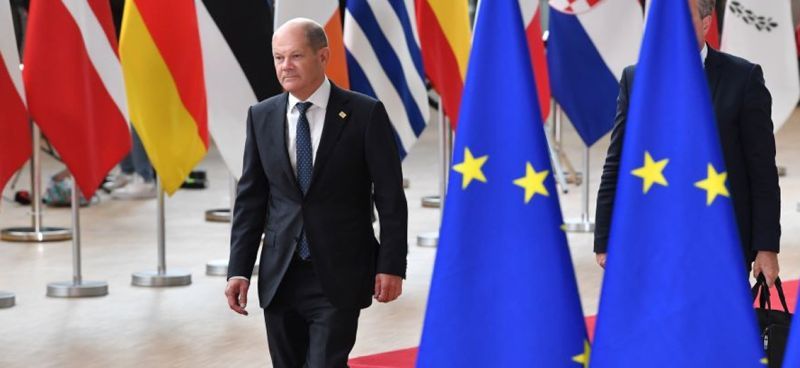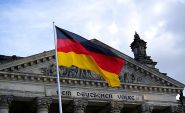- Home
- Middle East
- Germany’s Coalition Crisis: Chancellor’s Adviser to Be Named New Finance Minister

German Chancellor Olaf Scholz ©(AFP)
Joerg Kukies, a member of Olaf Scholz's Social Democrats and a close ally of the chancellor, will be named Germany's new finance minister, government sources told AFP on Thursday.
Scholz sacked previous finance minister Christian Lindner, from the pro-business Free Democrats, on Wednesday evening leading to the breakdown of his three-party coalition government.
Scholz has called a confidence vote for January 15, followed by elections likely in March, but critics are already questioning whether he can continue to govern for that long.
What happened?
Germany has been governed since 2021 by Scholz's centre-left SPD in a coalition with the Greens and the business-friendly Free Democrats (FDP).
The government -- nicknamed the 'traffic light' coalition after the colours of the three parties -- took office with lofty promises of change and modernisation after 16 years of Angela Merkel.
But the coalition has long been plagued by bitter infighting as the parties have disagreed on a huge range of issues such as budget policy, immigration, climate and how to revive the ailing economy.
All of that discord finally reached a critical point on Wednesday after crunch talks at the chancellery that ended in the surprise sacking of Lindner.
Traffic lights out
Scholz plans to carry on ruling as head of a minority government formed of his SPD and the Greens, without Lindner's FDP.
Robert Habeck, Scholz's vice chancellor and the de facto leader of the Greens, supports this scenario.
Without the FDP, the government will be down 91 MPs. The SPD has 207 seats and the Greens 117, leaving them short of the 367 votes needed for a majority.
Minority government
A minority government would no longer be able to pass any legislation through parliament on its own and would need the support of opposition parties.
Scholz said on Wednesday that he wanted to seek prompt talks with Friedrich Merz, the leader of the conservative CDU-CSU alliance, the biggest opposition party.
The chancellor said he wanted to seek "constructive cooperation on issues that are crucial for our country".
However, the range of issues on which Merz's party is likely to offer any support to Scholz's government is very narrow.
Pressing issues
The crisis could hardly have come at a worse time, on the same day as Donald Trump was re-elected to the White House and with several pressing issues on the domestic political agenda.
With Trump expected to reduce US support for Ukraine, the pressure will be on Europe -- and especially Germany as Kyiv's second-biggest backer -- to step up its support in the coming months.
At home, Germany is battling sluggish growth and a deep crisis in its once-revered car industry.
Scholz has already named a list of urgent domestic legislation he wishes to get passed through parliament before the end of the year.
This includes tax and pension reforms as well as "immediate measures for our industry", Scholz said.
Election in March
According to the German constitution, a chancellor can call for a vote of confidence in the Bundestag lower house of parliament to confirm whether they still have the support of parliament.
If the chancellor fails to win a majority, they can then ask the president to dissolve parliament within 21 days.
Elections must then be held within 60 days.
If the vote of confidence is held on January 15 as Scholz plans, the poll would then take place by late March -- six months earlier than Germany's next scheduled election on September 28, 2025.
But Scholz is already facing calls from the CDU-CSU alliance to hold a confidence vote immediately.
With AFP
Read more



Comments